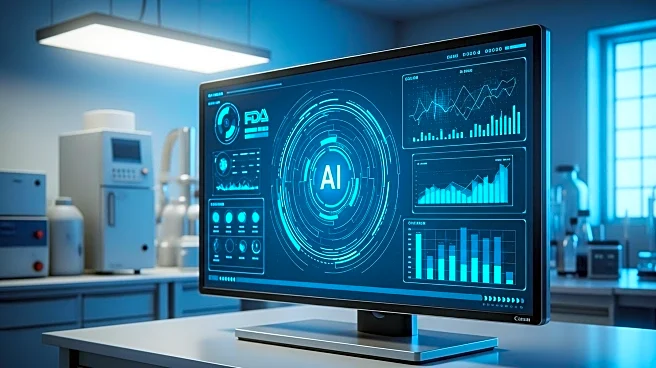What is the story about?
What's Happening?
The FDA is adapting to a deregulatory environment initiated by President Trump's executive order, which mandates the repeal of ten regulations for every new one introduced. This shift is particularly significant for the biopharma industry, as it may ease the path to market for new drugs. To mitigate risks associated with reduced regulation, the FDA is enhancing its monitoring capabilities using AI technology. This advancement aims to increase the capture of adverse events from the current 2-5% to potentially 80% or more, allowing for automatic action. Former FDA Chief Information Officer Vid Desai highlights both the opportunities and challenges of this regulatory shift, emphasizing the need for biopharma companies to prepare for increased agency inquiries and the potential for higher quality drugs.
Why It's Important?
The deregulatory push could have profound implications for the biopharma industry, potentially accelerating drug approval processes and fostering innovation. However, it also raises concerns about safety and oversight, which the FDA aims to address through enhanced AI monitoring. This could lead to improved drug safety and efficacy, benefiting consumers. Biopharma companies may face increased scrutiny and need to adapt to new regulatory frameworks, impacting their operational strategies. The balance between innovation and safety will be crucial as the industry navigates these changes.
What's Next?
Biopharma companies will need to prepare for the implications of increased AI monitoring and potential regulatory inquiries. The FDA's efforts to modernize its monitoring systems could lead to more efficient and effective oversight, but companies must ensure compliance with evolving standards. Stakeholders in the industry may engage in discussions about the balance between deregulation and safety, influencing future policy decisions. The integration of AI in regulatory processes could set a precedent for other sectors, prompting broader adoption of technology-driven oversight.
Beyond the Headlines
The shift towards deregulation and AI monitoring in biopharma could have ethical and legal implications, particularly concerning data privacy and the accuracy of AI-driven decisions. The industry may face challenges in ensuring that AI systems are transparent and accountable. Additionally, this development could influence global regulatory practices, as other countries observe the U.S. approach to balancing innovation with safety. Long-term, the integration of AI in regulatory processes could transform healthcare delivery, emphasizing personalized medicine and data-driven decision-making.















